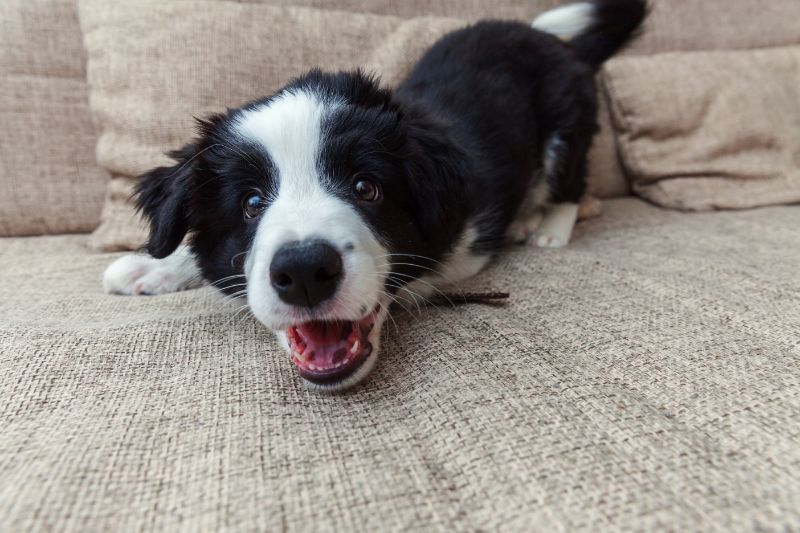No Bark! No Jump! Breaking Bad Habits in Dogs

It was cute at first; the playful bark at your cat, the little leaps to say hello when you walked in the door, the delicate digging at the food dish come dinner time… But then, your pup grew up and those once-adorable behaviors aren’t so cute anymore.
Many dog owners have let a “bad” behavior or two slip through while socializing and training their dogs and teaching them the manners they need to be proper canine citizens. The good news is, you’re not alone in this. But, as you’ve probably noticed, what was once innocuous is now a nuisance and you’re not sure how to break these unwanted behaviors. Training your dog to do something was one thing, but how do you train your dog to not do something?
Breaking Your Dog’s Bad Habits
Training your dog not to do something isn’t much different than training your dog to do something. Yes, it may take a bit longer, yes, it may take a bit more patience; but all in all the process is much the same: reward the good, ignore the bad.
One of the first hurdles you will need to overcome is positively reinforcing unwanted behaviors.
More often than not, the behaviors you may want to correct were likely rewarded early on. The days of “Oh, isn’t he so cute when he talks to the kitty!” or the “Jump up and give mommy hugs and kisses!” must come to an end. Correcting your own behavior toward unwanted habits in dogs is just as important as correcting the habits themselves.
When it comes to breaking bad habits in dogs, curb your endearment and, when they are in a situation where they may start doing things you don’t want them to do; jumping up, for example, take a neutral approach instead. This will allow you to ignore or gently correct the unwanted behavior or happily reward the wanted behavior. Don’t scold your dog for their misbehavior.
A calm “No jump.” as you softly turn away, and then a “Good no jump.” when the model the behavior you want (be it after they stop jumping, or if they don’t altogether) is far more effective than you jumping back and scolding them for doing something that until this point was ok. Doing so will only confuse them and exacerbate the situation.
Finally, don’t be afraid to revisit the reward system you used when you were training them early on – treats, the clicker, extra playtime, etc. This will not only be familiar to your dog, triggering their “learning mode”, but it will serve its purpose as it did before.
Don’t Bark Back
Barking can be particularly frustrating to dog owners, particularly if neighbors get involved.
If your dog is barking when you’re home, for whatever reason, don’t bark back! Do not attempt to scold them in a loud voice, as your dog will likely think you are barking back at them, making it either a game or reinforcing to them that the behavior is acceptable (or, likely, both). Keep calm, gently correct, praise, and reward. Distraction often helps, too. Try to break their fixation on whatever they are barking at (the cat, the kids outside, whatever it might be), buy offering something better. Treats are good, but playtime is better, as it will keep attention until they’ve forgotten about barking altogether.
If your dog has adopted the habit of barking while you’re away, look at possible reasons why before resorting to extreme measures. Their barking may be a symptom of separation anxiety, which can often be dealt with through minor adjustments to their schedule, perhaps some music, and a little TLC.
Finally, if neighbors are involved, be sure to communicate with them and let them know you are working on the issue, but it may take time to get it fully under control, and that you appreciate their patience. Cookies may help here, as well.
Don’t Give Up On Your Dog!
No matter how frustrated you get with your dog’s behaviors, don’t give up on them. Thousands of pets are needlessly surrendered every year because of training glitches and behavior stumbles that could be corrected. Work with your dog and don’t lose faith!
Please talk to us if you’ve hit a brick wall – there could be an underlying health issue at play, or we may be able to offer more individualized approaches to the issue. Whatever it may be, your team at Rocklin Ranch Veterinary hospital is happy to help!

